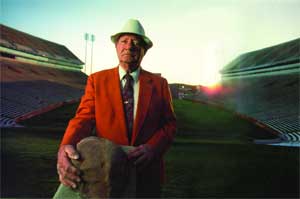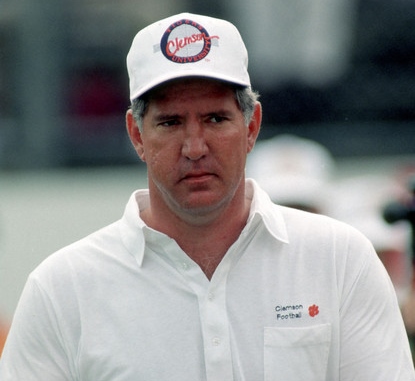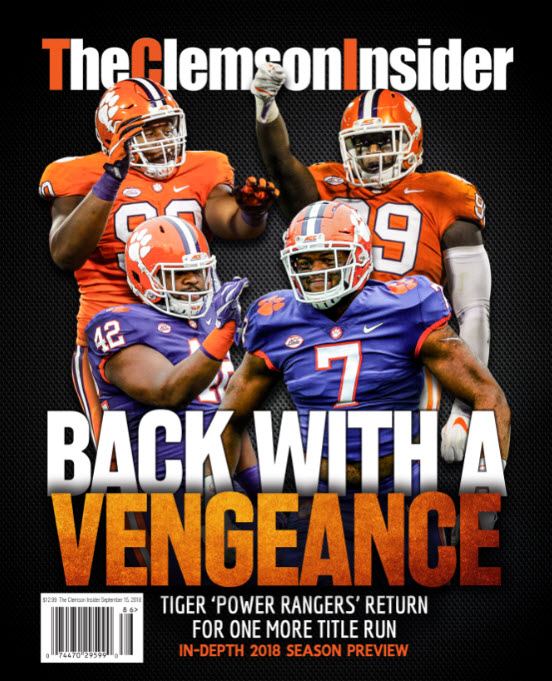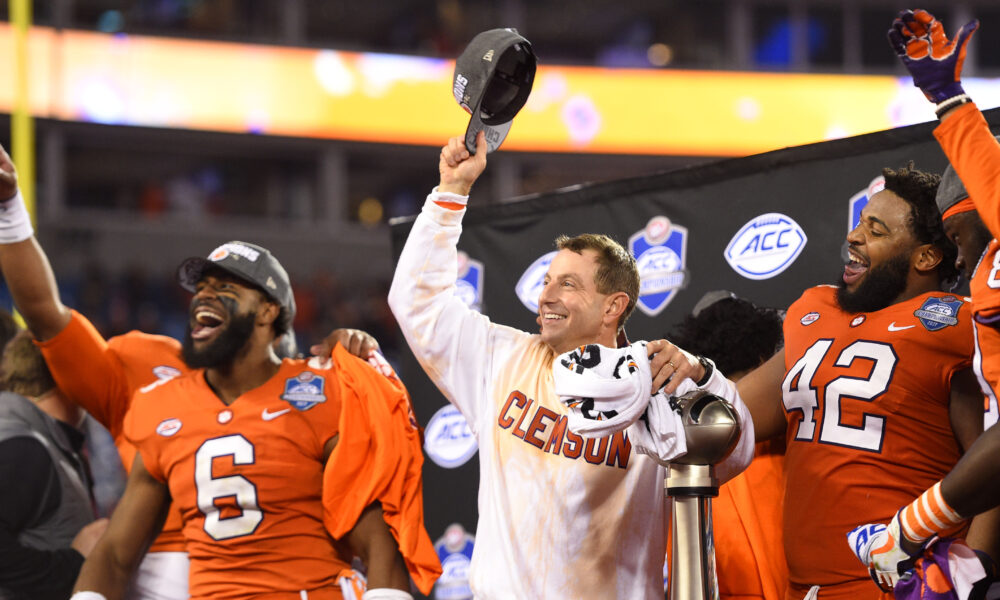You can make an argument, and a darn good one, that Dabo Swinney is already Clemson’s best head coach.
Granted Frank Howard, Jess Neely and Danny Ford are all in the College Football Hall of Fame, but in his 10 years as the Tigers’ head man, Swinney is already the second winningest head coach in school history. He has already won one national championship, played for another and has four ACC Championships under his belt.
However, each of the men listed above, including Swinney, did so much for the Clemson football program over the years that it is hard to say one guy is better than the other.
Neely is responsible for the start of IPTAY. After losing to the Citadel in a game played in Florence, Neely, Captain Frank Jervey and others met in car outside the stadium to discuss ways Clemson could help its football program get back on track. That meeting got the ball rolling towards the establishment of IPTAY.
In August of 1934, IPTAY, the nation’s first scholarship fundraising organization, was founded. Five years later, Neely took the Tigers to their first bowl game, a 6-3 victory over Boston College in the 1940 Cotton Bowl.
Clemson finished the 1939 season with a 9-1 overall record and finished 12th in the Final Associated Press Poll. That was the first Clemson team to finish a season ranked in a major poll.
In his nine seasons at Clemson, from 1931-’39, Neely brought the program to the forefront of mainstream college football with a 43-35-7 record. After IPTAY was formed Neely’s team did not have a losing record, as the Tigers went 36-18-2 in his final six seasons in Tigertown.
Howard took over the Clemson program in 1940. Though Neely brought Clemson back to the forefront of college football, Howard made it a national program in the 1950s.
After suffering through the downtrodden World War II years, when most of his players volunteered to help their country, Howard brought the program to national relevance during an 11-year stretch from 1948-’59.

Under Frank Howard Clemson finished with a 79-36-5 record from 1948-’59, including a 36-13-2 mark from 1955-’59.
During that time the Tigers won four conference titles (3 in the ACC and 1 in the SoCon), had two unbeaten teams, went to seven bowls games during an era when there were just seven bowl games to be played.
Howard’s 1948 team went 11-0 and finished No. 11 in the final AP poll, while his 1950 team went 9-0-1 and capped the season with a win over Miami in the 1951 Orange Bowl. They finished the year ranked No. 10 in the final AP rankings.
In an era when teams played just 10 regular season games a year, Howard had 8 teams win seven or more games during that 12-year stretch. Clemson finished with a 79-36-5 record from 1948-’59, including a 36-13-2 mark from 1955-’59.
The Tigers won seven or more games five straight years from 1955-’59, which is the equivalent to five straight 10-win seasons in today’s modern age of football.
Even when the ACC changed up his academic standards and made it harder for athletes to qualify for college, Howard’s teams still won three more ACC Championships in the 1960s and had seven winning seasons in conference play and five overall.
When Howard retired after the 1969 season, he finished his 30-year career as one of the winningest coaches in college football with a 165-118-12 record.
When Ford started his head coaching career, he was just 30 years old, the youngest coach in Division I college football. He also began it in an auspicious way. His first game was the 1978 Gator Bowl, a game in which the Tigers won, but not without some controversy surrounding it.
Ford got the job after Charlie Pell resigned following the 1978 regular season to take the head coaching job at Florida. Pell planned to coach the Tigers in the Gator Bowl, but the team wanted Ford, their offensive line coach, to be their head coach, so Pell stepped aside and granted them their wishes.

Danny Ford finished his Clemson career with a 96-29-4 overall record. The .760 win percentage was the best in school history at the time.
Clemson beat the Buckeyes, 17-15, in the Gator Bowl, but the game is known more for what happened at the end and the result it later brought to Ohio State legendary coach Woody Hayes. Defensive tackle Charlie Bauman intercepted Ohio State quarterback Art Schlichter’s pass with two minutes left to seal the Tigers’ victory.
He returned the ball up field and was forced out of bounds. When got up to celebrate, Hayes appeared to be helping him up, but instead he punched Bauman causing a brawl and both benches to clear. Hayes was fired the next morning by Ohio State because of the incident.
Though it was an auspicious start, Ford’s 11 seasons in Tigertown brought Clemson more national acclaim than at any other time prior to Swinney’s tenure.
Three years after the win over Ohio State, Ford led the Tigers to the 1981 National Championship with a 12-0 record. Clemson defeated three top-8 teams that season, including No. 4 Nebraska in the 1982 Orange Bowl to clinch the national championship.
During a three-year stretch from 1981-’83, the Tigers produced a 30-2-2 record, top’s in the country. During Ford’s 11 years, the Tigers won five ACC Championships, had four teams win 10 or more games, two 9-win teams and two 8-win teams.
Ford’s last four teams were a combined 38-8-2, including three straight ACC Championships from 1986-’88. He also finished his career at Clemson with four straight bowl wins. Overall, he took the Tigers to seven bowl games and had a 5-2 record in those games.
During his Clemson career, Ford’s teams beat some of the best in college football. The Tigers won at Notre Dame, beat Georgia five times, beat Ohio State, Nebraska, Penn State and Oklahoma.
Clemson finished ranked inside the top 20 seven times in Ford’s 11 years, including five times in the top 10. In the 1980s, Clemson was the fifth winningest program in college football with an 87-25-4 record.
Ironically, Ford’s last game as Clemson’s head coach came in the 1989 Gator Bowl, a 27-7 win over West Virginia. He finished his Clemson career with a 96-29-4 overall record. The .760 win percentage was the best in school history until Swinney came along.
Like Ford, Swinney’s career in Tigertown began auspiciously. He took over at the midway point in 2008 after Tommy Bowden stepped aside. Swinney eventually earned the job by closing the regular season with a 4-2 record, the first interim coach in college football history to lead his team to a winning record after taking the job halfway through the season.
From the beginning, Swinney has been a winner. His first team won the ACC Atlantic Division, the program’s first. Two years later he led the Tigers to their first ACC Championship in 20 years. They also won 10 games in a season for the first time in 21 years.
Since then, Clemson has completed seven straight 10-win seasons, while winning the ACC three more times.
Under Swinney, the Clemson program has reached a level it has never reached before with three straight College Football Playoff berths, three straight final top four rankings, seven bowl victories and the list goes on and on and on.
The Tigers have also beat college football’s elite in Ohio State, LSU, Georgia, Oklahoma, Notre Dame and Alabama under Swinney’s guidance. In his 10 years as Clemson’s head coach, Swinney is a remarkable 101-29, a .777 win percentage.
Since 2011, Clemson has the second best record in the country with an 82-15 mark. During that time the Tigers have finished ranked in the final AP top 25 every season. Swinney’s teams have allowed him to become the first coach in the history of college football to finish ranked the same or higher than its preseason ranking.
There are all the facts, you tell me who the best coach in Clemson history is? It is not as easy as it sounds. All four deserve credit for making Clemson one of the best football program’s in the history of college football.
Hot off the press. ‘Back with a Vengeance’ is now available for online orders. TCI takes an in-depth look at the upcoming season as the Tigers march towards another national championship. Order your copy today!

